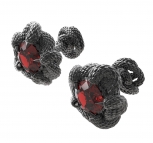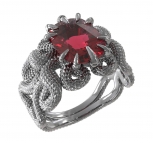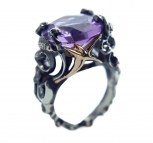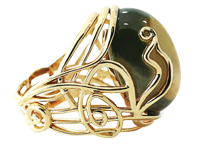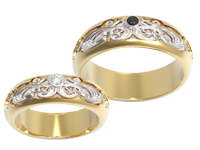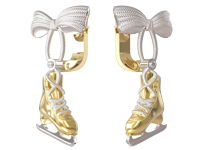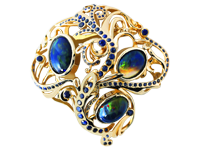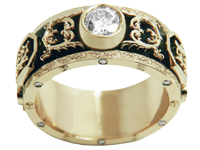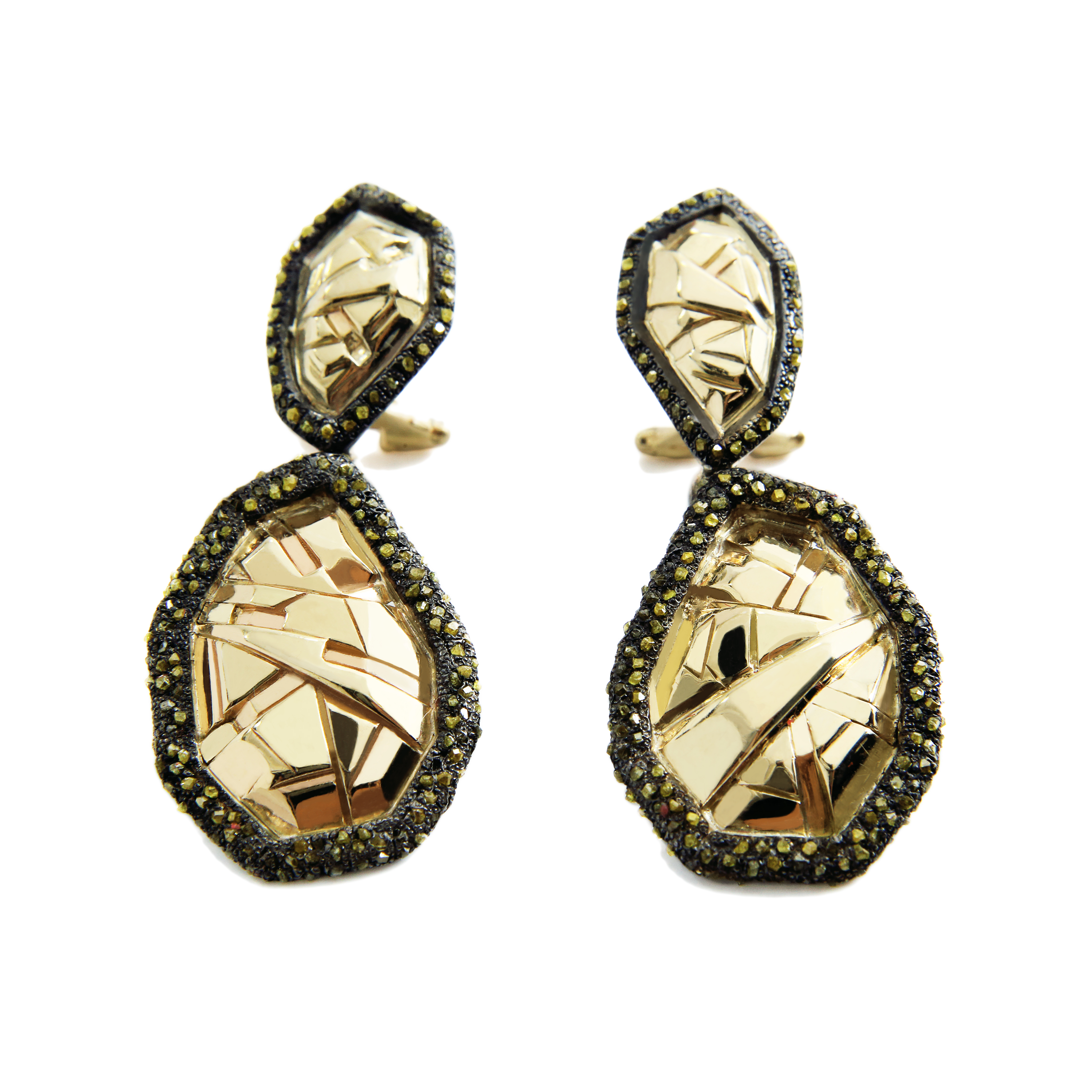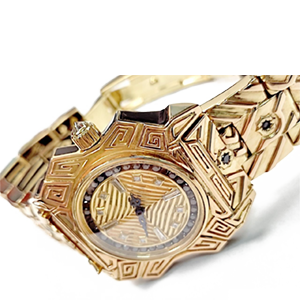Product in cart
Lariat for mediators|ALTER EGO|
Price: for example





Product description
In the world of guitar agony and the search for mediators, as if in a whirlwind of slam and mosh, every guitarist knows what it means to lose a saving piece of plastic. But now you have a solution — our "Mediator" pendant, made of silver and titanium, is always on guard! This pendant is not just an accessory, but a real lariat for mediators: it provides a place to store several plectrums for any occasion. It's time to stop looking for a mediator in your pockets, like apartment keys after a stormy night! The pendant can be personalized or with the logo of your favorite band, adding personality and style to your guitar arsenal. Imagine how your pendant will sparkle around your neck during a concert, like a star in the night sky. You will be able to focus on the game and forget about the problems of finding mediators in the seething sea of sounds and rhythms. Your music zeighouse will become even more reliable and stylish! Now let's look into the past and see how this small but important detail originated. The pick, a well-known device for playing plucked instruments, is now more often used to play various types of guitars. The word "Plektron" comes from the Greek "Plesso", which means "hitting". Its relative, the term "Mediator", translates as "mediator". And not just an intermediary, but a mediator of all mediators, capable of translating your strings from the language of silence to the language of thunder. In Russia, we still call him a "mediator." The first mediators appeared in the 8th century in Western Europe. The oldest known plectrum dates back to 1850. Unfortunately, the place of its storage is unknown, probably someone has long lost it between the sofa cushions. Due to its ubiquity and popularity, guitar picks have been used by guitarists in various playing techniques. From rhythmic acoustic patterns, blues and jazz to black metal tremolo. Sometimes the mediator is also used for playing in mixed styles, where fingers are also involved. A mediator is like jeans: it fits everything and is always relevant. At first, plectrums were made from turtle shell and bones of other animals. Over time, more humane and mass production was found. Mediators began to be made from celluloid. This is the least expensive, more practical and convenient plastic from the point of view of production and when playing. Luigi D'Andrea, a vacuum cleaner salesman from New York, takes the stage here. One day, he accidentally came to a sale of materials for making jewelry. Among the materials were a shell and plates of cellulose nitrate. His youngest son Anthony noticed that these things looked like picks for his uncle's mandolin. After that, Luigi decided to sell them to a music store under this pretext. In 1922, Luigi opened his own small factory and established the production of celluloid plectrums. He sanded the edges of the picks with his own hands. Now mediators are made of a variety of materials. There are about 10 types of plastics for them alone. To this day, mediators are also made of bone, glass, polymers, metals, precious stones, wood and other materials. It seems that mediators from recycled toothbrushes will soon appear — ecology first of all! Famous guitarists often find themselves in funny situations involving mediators. For example, Jimi Hendrix could play the guitar even with his teeth if he did not find a pick at hand. And Joe Satriani once got so carried away with solo that the pick flew out of his hands and into the crowd. One lucky person in the hall found it and still keeps it as a talisman. And, of course, we must not forget about Brian May from Queen, who, not trusting ordinary mediators, uses British sixpence for the game. Perhaps it is thanks to this creative approach that his guitar parts sound so unique. So, my friends, a pick is not just a piece of plastic. It is your faithful companion in the world of music, your mediator between the world of silence and the stormy ocean of sounds. And our lariat "Mediator" is not an ornament, but a symbol of your passion for music and style, which is always with you. © Your Alter Ego
Specifications
Materials: 925 sterling silver, titanium, titanium pick, shoelace, engraving Size: 6x5 cm Total weight with end caps (skulls): 51.85 g. Silver: 47.07 gr. Titanium: 4, 78 gr.
Payment and delivery
Payment: Cash, Visa, Western Union. Delivery: Russian Federation: CDEK, Boxberry, Express.ru, and etc. International: EMS, Fedex, and etc.
In the world of guitar agony and the search for mediators, as if in a whirlwind of slam and mosh, every guitarist knows what it means to lose a saving piece of plastic. But now you have a solution — our "Mediator" pendant, made of silver and titanium, is always on guard! This pendant is not just an accessory, but a real lariat for mediators: it provides a place to store several plectrums for any occasion. It's time to stop looking for a mediator in your pockets, like apartment keys after a stormy night! The pendant can be personalized or with the logo of your favorite band, adding personality and style to your guitar arsenal. Imagine how your pendant will sparkle around your neck during a concert, like a star in the night sky. You will be able to focus on the game and forget about the problems of finding mediators in the seething sea of sounds and rhythms. Your music zeighouse will become even more reliable and stylish! Now let's look into the past and see how this small but important detail originated. The pick, a well-known device for playing plucked instruments, is now more often used to play various types of guitars. The word "Plektron" comes from the Greek "Plesso", which means "hitting". Its relative, the term "Mediator", translates as "mediator". And not just an intermediary, but a mediator of all mediators, capable of translating your strings from the language of silence to the language of thunder. In Russia, we still call him a "mediator." The first mediators appeared in the 8th century in Western Europe. The oldest known plectrum dates back to 1850. Unfortunately, the place of its storage is unknown, probably someone has long lost it between the sofa cushions. Due to its ubiquity and popularity, guitar picks have been used by guitarists in various playing techniques. From rhythmic acoustic patterns, blues and jazz to black metal tremolo. Sometimes the mediator is also used for playing in mixed styles, where fingers are also involved. A mediator is like jeans: it fits everything and is always relevant. At first, plectrums were made from turtle shell and bones of other animals. Over time, more humane and mass production was found. Mediators began to be made from celluloid. This is the least expensive, more practical and convenient plastic from the point of view of production and when playing. Luigi D'Andrea, a vacuum cleaner salesman from New York, takes the stage here. One day, he accidentally came to a sale of materials for making jewelry. Among the materials were a shell and plates of cellulose nitrate. His youngest son Anthony noticed that these things looked like picks for his uncle's mandolin. After that, Luigi decided to sell them to a music store under this pretext. In 1922, Luigi opened his own small factory and established the production of celluloid plectrums. He sanded the edges of the picks with his own hands. Now mediators are made of a variety of materials. There are about 10 types of plastics for them alone. To this day, mediators are also made of bone, glass, polymers, metals, precious stones, wood and other materials. It seems that mediators from recycled toothbrushes will soon appear — ecology first of all! Famous guitarists often find themselves in funny situations involving mediators. For example, Jimi Hendrix could play the guitar even with his teeth if he did not find a pick at hand. And Joe Satriani once got so carried away with solo that the pick flew out of his hands and into the crowd. One lucky person in the hall found it and still keeps it as a talisman. And, of course, we must not forget about Brian May from Queen, who, not trusting ordinary mediators, uses British sixpence for the game. Perhaps it is thanks to this creative approach that his guitar parts sound so unique. So, my friends, a pick is not just a piece of plastic. It is your faithful companion in the world of music, your mediator between the world of silence and the stormy ocean of sounds. And our lariat "Mediator" is not an ornament, but a symbol of your passion for music and style, which is always with you. © Your Alter Ego
Specifications Payment and deliveryProduct code АЕХ0048











